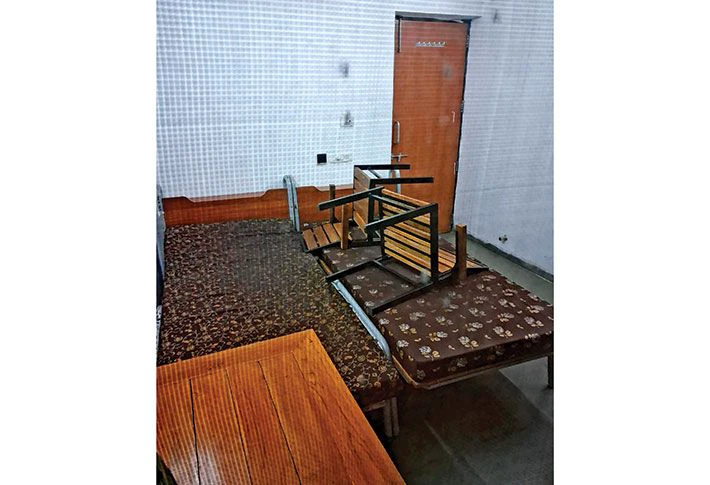The December 2024 PhD cohort at the Indian Institute of Technology Gandhinagar (IIT-Gn) is grappling with an unexpected accommodation crisis. An institute known for its student-friendly housing is now facing sharp criticism from its own scholars.
Initially promised single-occupancy rooms, the new PhD students are now being forced to share compact rooms designed for one person—severely affecting their academic productivity. Despite hostel fees being hiked to ₹6,000 per student—among the highest across IITs—students allege they are being denied basic, dignified living conditions.
Policy Shift Leaves Scholars in the Lurch
According to a media report, repeated appeals to the administration have gone unanswered, IIT-Gn’s policy treats PhD scholars who join in December as second-year students during July’s hostel reallocation, since room allotment occurs only once a year. While the December 2024 batch was initially allotted single rooms, hostel staff reportedly stopped them from moving in and informed them of a policy change requiring two scholars to share a single-occupancy room.
“There’s barely enough space to fit two beds, let alone desks or wardrobes,” one student Said. “In some cases, the room door can’t even close properly with both beds inside. It’s shocking that an institute focused on research doesn’t offer its scholars the space to study.” Students added that the same cramped arrangement is being applied to first-year BTech and all MTech students as well.
Priority for Non-Students?
Students argue that the shortage of single rooms is not due to capacity constraints but misallocation. They claim around 60 non-student occupants—including postdoctoral fellows, research assistants, and other staff—are being prioritized over them.
“Our PhD batch only has 33 students needing rooms. Just 17 more single rooms would resolve this—but those are currently occupied by non-student personnel,” they alleged.
Institute Responds
The Office of Student Affairs stated that 2,633 students are currently housed on campus, with an additional 1,095 expected this semester. To manage the growing demand, a new hostel block is under construction and expected to be ready in 18 months. Meanwhile, the institute has arranged off-campus accommodation in nearby Palaj village, complete with shuttle service for the 15-minute commute.
Officials also clarified that some larger single rooms were temporarily converted into shared rooms in line with the hostel design manual, ensuring maximum on-campus housing. They emphasized that room allocations involved student representatives and that necessary infrastructure was being provided. The administration also noted that hostel charges are based on the number of beds, not room occupancy.
Despite these assurances, students remain unconvinced, saying the current arrangement is impractical for researchers who require quiet, personal space to work.



